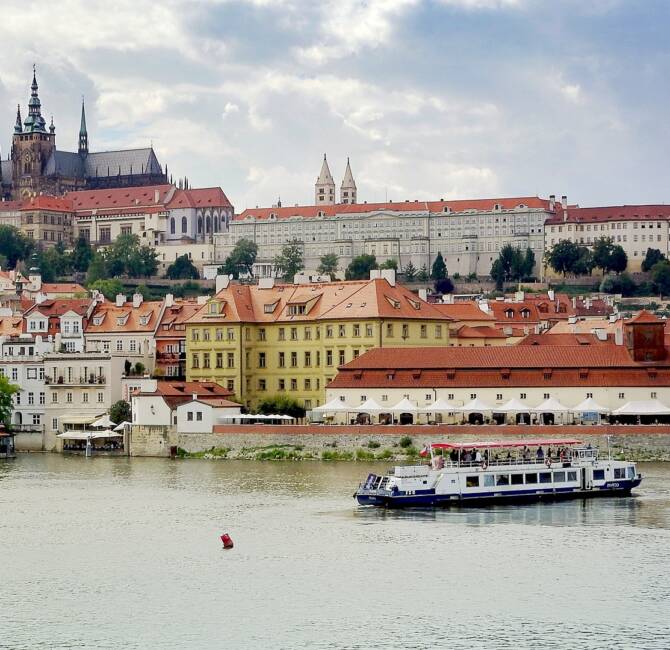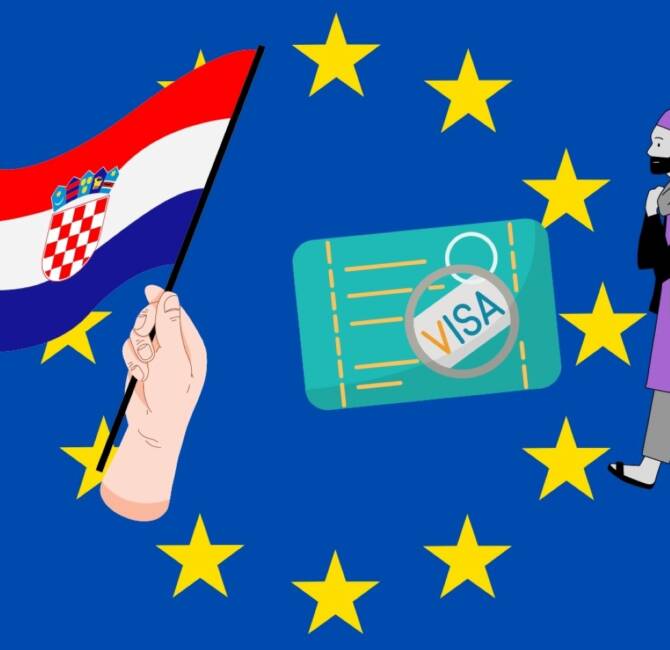Poland/Ukraine – As we reported on September 15, Poland has decided, alongside Hungary and Slovakia, to extend the import ban on Ukrainian cereals beyond September 15 after the European Union tacitly decided not to do so. In response, the authorities in Kyiv have announced that they would take the three countries to the World Trade Organization (WTO).
An offer of compromise combined with threats
On Tuesday, Ukrainian Prime Minister Denys Shmyhal proposed a compromise, saying:
“Our government is proposing a compromise scenario to the EU and neighbouring countries.
We have already submitted an action plan to the European Commission for the control of agricultural products destined for export from Ukraine.”
But the carrot comes with a stick… because Mr. Shmyhal also warned his neighbours that
“if no agreement can be reached, Ukraine will proceed with its action against Poland, Hungary, and Slovakia at the WTO
for the unilateral restrictions on Ukrainian agricultural products”. He further said, according to Ekonomichna Pravda, that: “If Poland and Hungary do not accept the measures agreed with the European Commission and fail to lift their unilateral bans on our goods,
we will decide to ban imports of certain categories of goods from these countries to Ukraine.”
Ukraine’s Deputy Economy Minister, Taras Kachka, told Polish daily Rzeczpospolita that Ukraine had decided to ban imports of Polish fruit and vegetables in order to persuade Poland to “step back and accept the grain trade authorization mechanism developed in cooperation with the EU, for which Ukraine is responsible”.
Morawiecki’s warning to Kyiv
For his part, Poland’s Agriculture Minister, Robert Telus, declared on Tuesday that the Polish authorities “won’t back down, because it’s in the interests of Polish farmers, and for us, that’s the most important thing.”
Prime Minister Mateusz Morawiecki then issued a staunch warning, saying:
“I’m warning the Ukrainian authorities: if they fuel the conflict, we’ll add more products to the list of those banned from import into Poland.”
Following Ukraine’s complaint to the WTO, Hungary, Poland, and Slovakia have notified the European Commission that they “will not participate in the work of the EC’s coordination platform for Ukrainian cereals”.
A sense of betrayal in Poland
In another sign of what has been interpreted by many observers as a clear and sudden cooling in Polish-Ukrainian relations, the expected meeting between Polish President Andrzej Duda and his Ukrainian counterpart, Volodymyr Zelensky, at the United Nations General Assembly’s 78th session did not happen. Although it was first said that it was President Duda who cancelled that meeting, some Polish sources explained that it was the Ukrainian side which had communicated that such a meeting had not been planned, suggesting that Ukrainians cancelled the meeting.
The Polish president indicated that he would not rule out a postponement of the meeting to a later date after the UN General Assembly, but the two president won’t meet in New-York. Zelensky, who left before the Russian envoy took the floor, was also conspicuously absent from Polish President Duda’s speech.
“Ukraine is behaving like a drowning person clinging to everything they can… but we have the right to defend ourselves against the harm being done to us”, Polish President Andrzej Duda told the press.
In his speech to the UN General Assembly, Ukrainian President Volodymyr Zelensky seemed to accuse Poland of playing into Russia’s hands, explaining, with regard to the Ukrainian grain corridor and the banning of its sales in Poland (but not of transit through Poland), that “It’s alarming to see how some in Europe play out solidarity in a political theatre – making a thriller out of the grain. They may seem to be playing their own role, but in fact they are helping to set the stage for a Moscow actor.”
While Hungary is used to attacks of this nature from Zelensky, Poland is not and sees them as very unfair, given all the help and support given to Ukraine at great cost to the country from the first day of Russia’s full-fledged war. Publications in the press and on social networks attest to a real sense of betrayal among some Poles.
— Pan Cezary Krysztopa #BabiesLivesMatter (@cezarykrysztopa) September 19, 2023
On Wednesday, in an interview with Polsat News, Polish Prime Minister Mateusz Morawiecki declared:
“We are no longer transferring weapons to Ukraine; we are now arming ourselves with the most modern weapons.”
While Morawiecki was only commenting on the current situation, foreign media outlets were quick to say that Poland will no longer send weapons to Ukraine, linking this to the grain dispute.




